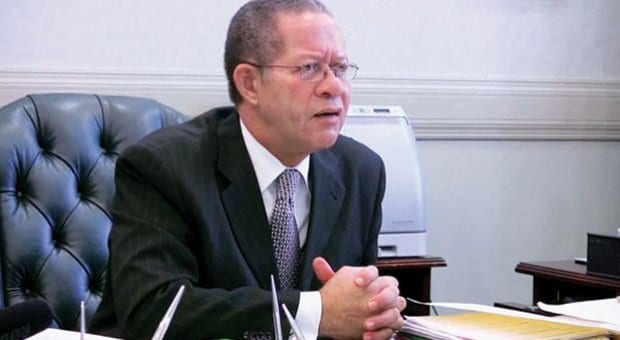“I see the plane going up… I feel like something in me floats away — all of that tension, all of that fear literally floating away.”
Face pixilated to obscure his identity, a gay Jamaican man recalls the visceral relief that washes over him every time he heads to New York to see friends and walk the streets more freely than he can on the island. Selena Blake’s Taboo… Yardies provides compelling justification for his and other Jamaicans’ temporary or permanent escapes abroad.
The film unleashes jarring footage of provocative media headlines, venomous denunciations of gays and lesbians from fellow Jamaicans, and the almost biblical scene of a transgender person — bloodied, bruised and beaten to the ground from an attack — surrounded by instigators and spectators, but no Samaritans. It’s the kind of imagery that prompted Time magazine to speculate in 2006 whether the “One Love” Caribbean nation was the most homophobic place on Earth.
Blake’s lens focuses not only on the relief and reawakened boldness of gay Jamaicans who have fled persecution on the home front, but on those who stay and continue to confront entrenched homophobia emanating from the island’s many pulpits, politicians and the general population.
I had hoped to hear more from author Beverly Anderson Manley. Her all-too-brief allusion to a linkage between society’s homophobia and the anger and violence that pervade Jamaican society suffers for insufficient depth. I also wanted to hear if there were any creative solutions to foster reasonable discussions about sexuality and its diverse expressions, as opposed to the murderous bravado that continues to hold.
What former prime minister Bruce Golding had to say about gays and homosexuality was par for the course for what you’d expect to hear from the most conservative evangelical Christians. Devoid of scrutiny, and with a “Well, that’s the way it is” nonchalance, Golding presents Jamaicans’ concerns that support for gays is a “direct threat” to family and society. He musters no outrage and issues no call to action in a display of vapid leadership that hangs heavy during his takes before Blake’s camera. Instead, he unimaginatively conflates homosexuality with bestiality and incest and blames “gay-on-gay” violence for the homophobic attacks that occur.
Last year, Vancouver MP Hedy Fry, who is originally from the Caribbean, told a forum that included Jamaican policymakers that taking risks and speaking out on behalf of those who can’t are critical aspects of political life.
“Do we just continue to make excuses and say, ‘Well, this is where we come from, and this is how it’s going to be?” she asks. “Why go into politics if you are not going to be there to speak for the voiceless and the most vulnerable? You have the power to change lives, and that’s what you have to have the courage to do.”
Though Prime Minister Portia Simpson-Miller raised the possibility of a review of the colonial-era buggery law in a televised debate during the island’s 2011 election, that plan has since fallen by the wayside in favour of other legislative priorities.
Since Blake’s film was released, Jamaican activists like Javed Jaghai and Maurice Tomlinson have initiated court proceedings in separate bids to challenge the island’s systemic homophobia.
Jaghai is challenging its buggery law, while Tomlinson hopes a panel of Supreme Court judges will decide that three Jamaican TV stations’ refusal to air a gay-friendly ad “constitutes constructive rejection and a violation of his Charter rights.”
Taboo . . . Yardies
Thurs, Aug 22, 4:45pm
Cineplex Odeon International Village Cinemas
88 West Pender St, 3rd floor


 Why you can trust Xtra
Why you can trust Xtra


